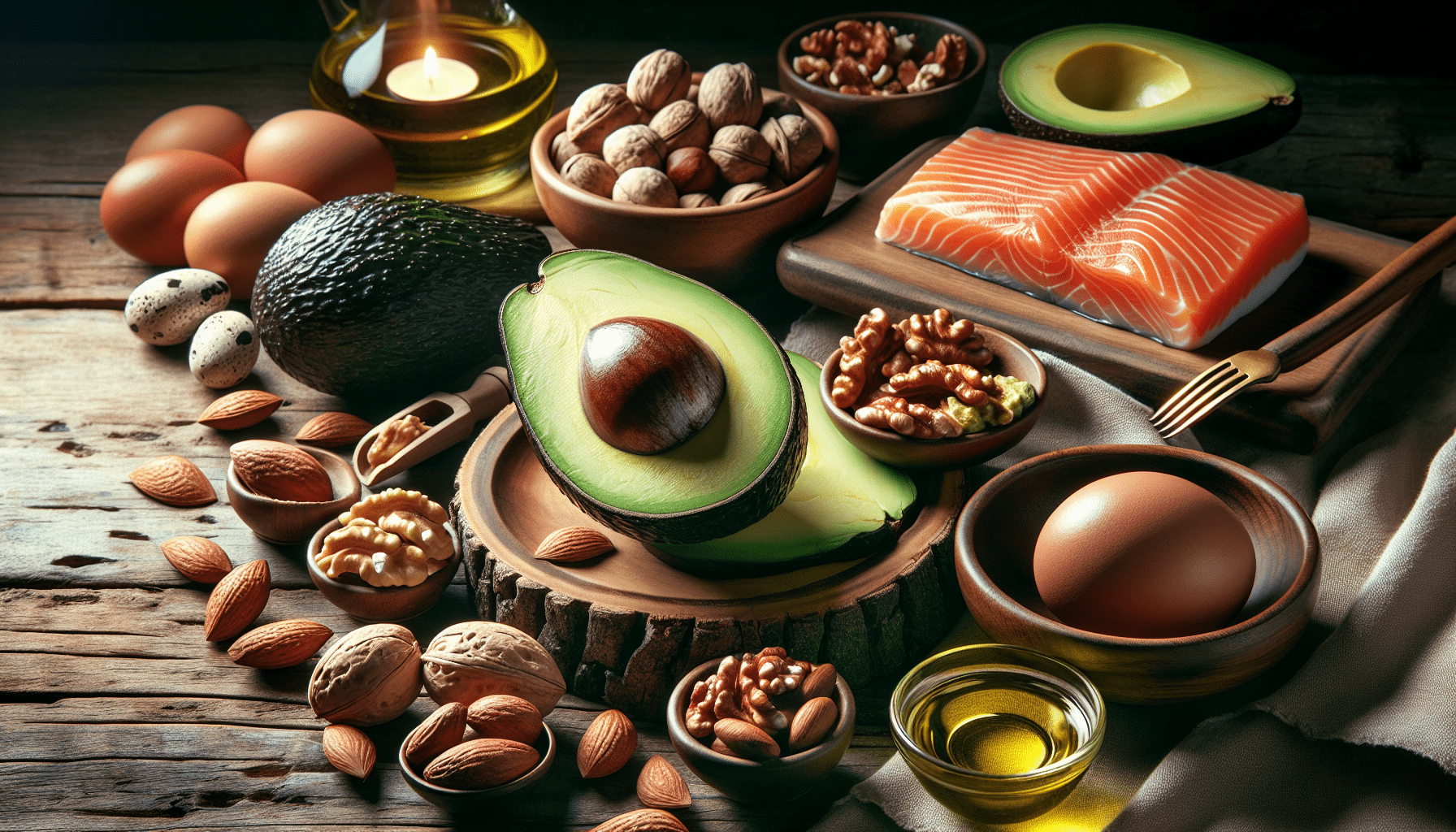If you’ve ever wondered how your dietary choices impact your sleep, you’ll find the answer fascinating. “How Does A Keto Diet Affect Sleep Patterns?” dives into the intricate relationship between a ketogenic diet and the quality of your rest. From the early stages of transitioning into ketosis—where you might experience some disturbances—to the long-term benefits that could potentially make you sleep like a baby, this piece walks you through it all. Get ready to uncover how cutting carbs and embracing fats may be a game-changer for your nightly slumber! Have you ever wondered how what you eat affects your sleep? If you’re considering or already on a keto diet, you might be curious about how this high-fat, low-carb lifestyle changes your nights. Let’s dive into understanding how a keto diet affects sleep patterns and what you can do to optimize your rest.
What Is a Keto Diet?
Basics of Keto
The ketogenic diet, often referred to as keto, focuses on high fat and low carbohydrate intake. By decreasing carbs, your body enters a state called ketosis, where it burns fat for energy instead of glucose.
Macronutrient Breakdown
Here’s a typical macronutrient breakdown for someone on a keto diet:
| Macronutrient | Percentage of Daily Calories |
|---|---|
| Fat | 70-80% |
| Protein | 15-25% |
| Carbohydrates | 5-10% |
Initial Sleep Disruptions: Keto Flu
What is Keto Flu?
When you first switch to a keto diet, you might experience symptoms known as the “keto flu.” This includes headache, fatigue, irritability, and difficulty sleeping. These symptoms are temporary but can greatly affect your sleep during the initial phase.
Why It Happens
Cutting out carbs suddenly can cause an electrolyte imbalance and dehydration. Your body is also accustomed to using glucose for energy, and the shift to burning fat can be jarring.
Tips to Mitigate Keto Flu
- Stay Hydrated: Drink plenty of water.
- Increase Electrolytes: Include sea salt, potassium-rich foods, and magnesium supplements.
- Gradual Transition: Gradually reduce your carb intake rather than cutting it all at once.
Long-term Sleep Impacts
Improved Sleep as You Adapt
Once you get past the initial adaptation phase, many people report improved sleep quality on a keto diet. Your body becomes efficient at using fat for energy, leading to more stable blood sugar levels, which can contribute to better rest.
Impact on REM Sleep
Research indicates that a keto diet might reduce the amount of REM (Rapid Eye Movement) sleep you get. REM sleep is crucial for emotional regulation and cognitive function. However, the quality of the rest phases of your sleep may improve, balancing out this reduction.
How Satiety Affects Sleep
Eating a diet rich in healthy fats and proteins keeps you fuller for longer, which can reduce nighttime hunger and the need for midnight snacks. A stable blood glucose level throughout the night often means fewer disruptions.
Potential Sleep Issues
Insomnia
Some people experience insomnia or trouble falling asleep when first starting a keto diet. This is often linked to changes in brain energy sources from glucose to ketones.
Night Sweats
Your metabolic rate may increase during initial stages or workouts, leading to night sweats which can disrupt sleep.
Restless Leg Syndrome (RLS)
There have been anecdotal reports of increased RLS symptoms for some individuals on a keto diet. Though not scientifically confirmed, it’s something to keep an eye on.
The Role of Cortisol and Keto
Cortisol Levels
Switching to a keto diet can also affect your cortisol levels (the stress hormone). Elevated cortisol levels can interfere with sleep quality and duration.
Managing Cortisol
- Stress Management: Practice relaxation techniques like meditation or yoga.
- Balanced Meals: Ensure you’re not missing out on essential vitamins and minerals.
- Regular Exercise: Engage in physical activities to stabilize cortisol levels.
Strategies to Optimize Sleep on Keto
Monitor Your Macronutrient Intake
Ensuring your macronutrient intake is correctly balanced can make a big difference. Overdoing proteins can lead to gluconeogenesis, where your body converts protein into glucose, potentially kicking you out of ketosis and affecting your sleep.
Bedtime Routines
- Consistent Schedule: Go to bed and wake up at the same time every day.
- Limit Blue Light: Reduce exposure to screens an hour before bedtime.
- Bedroom Environment: Keep your sleeping area cool, quiet, and dark.
Supplements for Better Sleep
- Magnesium: Helps relax muscles and improve sleep quality.
- Melatonin: A hormone that can help regulate your sleep-wake cycle.
- 5-HTP: A precursor to melatonin that can support sleep onset.
Keto-Friendly Foods for Better Sleep
Fatty Fish
Rich in omega-3 fatty acids and vitamin D, fatty fish can improve your sleep quality.
Nuts and Seeds
High-magnesium nuts like almonds and seeds like pumpkin seeds can enhance your rest.
Leafy Greens
Spinach and other leafy greens are high in magnesium and potassium, which can relax muscles and nerves, supporting better sleep.
Herbal Teas
Chamomile or valerian root tea can act as natural sleep aids.
Conclusion: Your Personal Experiment
Everyone’s body responds differently to dietary changes, and it might take some time for you to find what works best. Keep track of your sleep patterns and make adjustments as necessary. By understanding the potential impacts of a keto diet on your sleep, you can take measures to ensure that both your diet and sleep quality are optimized.
If you’re considering starting a keto diet or are already on one, it’s crucial to understand how it may affect your sleep to address any issues promptly. With the right strategies, you can enjoy the benefits of a keto lifestyle without compromising on quality rest.
So, have you noticed any changes in your sleep since starting the keto diet? We’d love to hear about your experiences and any tips you might have for others!

